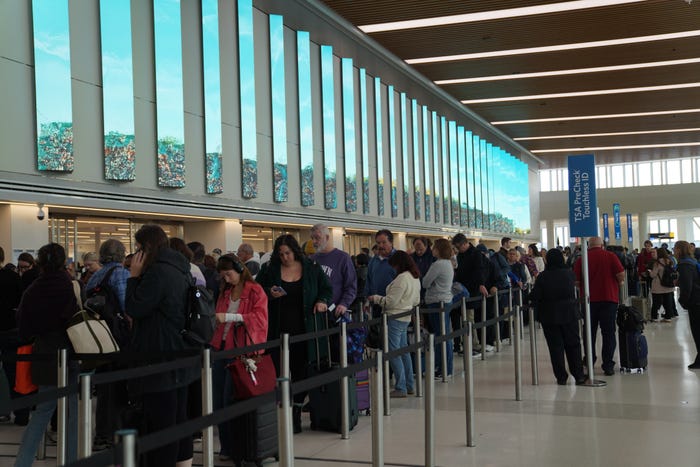Passengers are facing significant travel disruptions as airlines have been ordered to cancel thousands of flights due to the ongoing government shutdown. Starting from March 15, 2024, the Federal Aviation Administration (FAA) mandated that airlines reduce their schedules by 10% at 40 major airports across the United States. This decision comes in response to staffing shortages affecting air traffic control.
As of early Thursday morning, multiple airlines were still assessing how these cuts would impact their operations. The complexity of airline scheduling means that adjustments are not straightforward. Carriers must carefully manage the implications of flight cancellations on their aircraft and crew placements.
Travelers are urged to check the status of their flights, particularly those booked for the weekend. Airlines are expected to inform customers of any cancellations or changes as soon as possible. In a LinkedIn post, Frontier Airlines CEO Barry Biffle advised passengers, stating, “If your flight is canceled, your chances of being stranded are high, so I would simply have a backup ticket on another airline.” He expressed regret over the situation and encouraged sensible travel planning.
Frontier Airlines anticipates that most of its flights will operate as scheduled but will communicate with customers where changes are necessary. The airline is also allowing customers with bookings during this period to change or cancel their flights without penalty.
United Airlines has provided the most detailed response to the FAA’s directive. In a memo to staff, CEO Scott Kirby confirmed that long-haul international flights and routes between the airline’s seven U.S. hubs would not be affected. He emphasized the importance of maintaining the integrity of their network to provide options for customers and sustain operational systems. United’s hubs include key airports such as Chicago O’Hare, Denver, Houston, Los Angeles, Newark, San Francisco, and Washington, D.C..
Conversely, cancellations are likely to impact regional flights and domestic routes that do not connect two hubs. United Airlines is also offering refunds for those booked during the period of reduced air traffic.
Other airlines are still determining the full extent of the flight reductions. American Airlines has stated that it is “awaiting additional information from the FAA to determine which flights will be impacted.” The airline anticipates that the “vast majority” of its customers will remain unaffected but will proactively reach out to those who may experience changes.
Southwest Airlines is currently evaluating how the FAA’s flight reductions will affect its schedule and will communicate directly with customers as updates become available. Airlines such as Alaska Airlines, Delta Air Lines, and Spirit Airlines did not respond to requests for comment as of the time of reporting.
As travelers navigate this challenging situation, they are encouraged to remain vigilant about their flight statuses and to explore alternative travel arrangements if necessary. The impact of the government shutdown on air travel underscores the interconnected nature of aviation operations and regulatory oversight.







